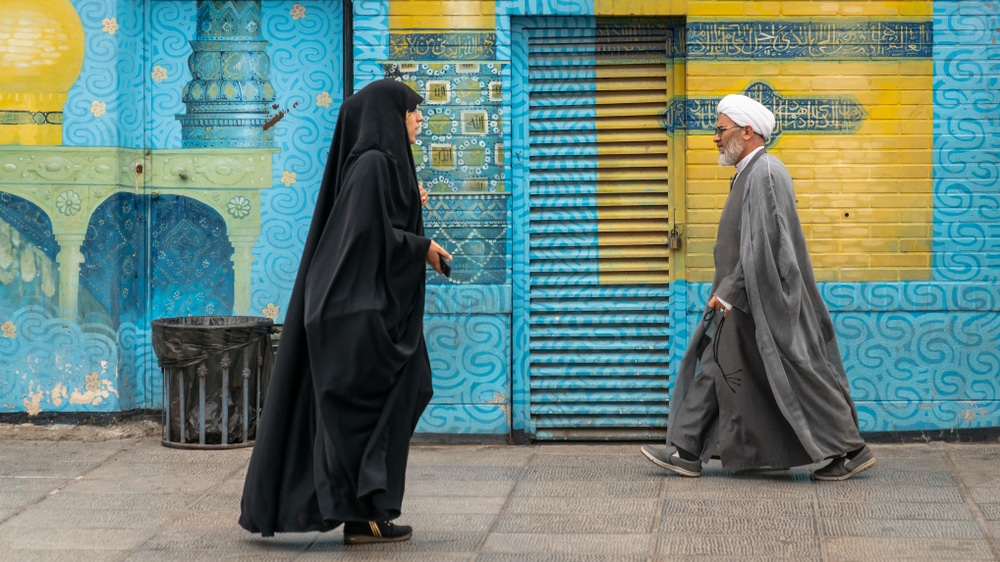In a renewed clampdown on the enforcement of hijab regulations, Iranian authorities have launched a campaign named “Noor” (meaning “light” in Persian), resulting in the violent arrest of numerous women and girls. This campaign began simultaneously with Iran’s drone strikes on Israel on April 13. Human rights organizations have verified videos circulating on social media that depict Iranian women and girls being aggressively apprehended by the morality police, known as Gasht-e-Irshad.
Eyewitness accounts and video footage show that these arrests often involve physical violence. In one reported incident in Tehran, a mother and daughter were surrounded, insulted, and forcibly dragged into a van by both female and male agents of the morality police. Other accounts describe similar treatment, with agents using derogatory language and physical force, including kicking and hitting, to subdue women accused of violating the hijab mandate.
A video from today shows several morality police officers violently arresting a woman for her Hijab in Tehran’s Enghelab Square. #IRGCterorrists @globalnews
— Maral (@Maraalxx) April 22, 2024
The harsh enforcement tactics have reignited heated discussion about the treatment of women under Iran’s current regime, especially following the death of Jina Mahsa Amini in custody, which sparked international protests and condemnation last year. Human rights groups and the United Nations have since accused the Iranian government of committing crimes against humanity, including rape and sexual assault of protesters.
This intensified enforcement of hijab laws has spread fear among Iranian women, who now face increased surveillance and arrests. Some women report receiving messages warning them of penalties for non-compliance with the hijab law, including fines and vehicle confiscations.
#BREAKING: This happened in ‘Haft-e-Tir’ metro station of #Tehran today. The Morality Police of #Iran‘s Islamic Regime attacked & arrested a woman who had not covered her hair in public. Crowd of people protested against the police & forced them to release the woman. pic.twitter.com/29snB4c9TB
— Babak Taghvaee – The Crisis Watch (@BabakTaghvaee1) April 23, 2024
Activists, including those who have suffered under these policies, are calling on international leaders to recognize and address what they describe as gender apartheid in Iran. The severity of the crackdown and the global calls for action suggest a critical juncture for Iran’s policy on women’s rights and international relations.
Expanded Coverage:






